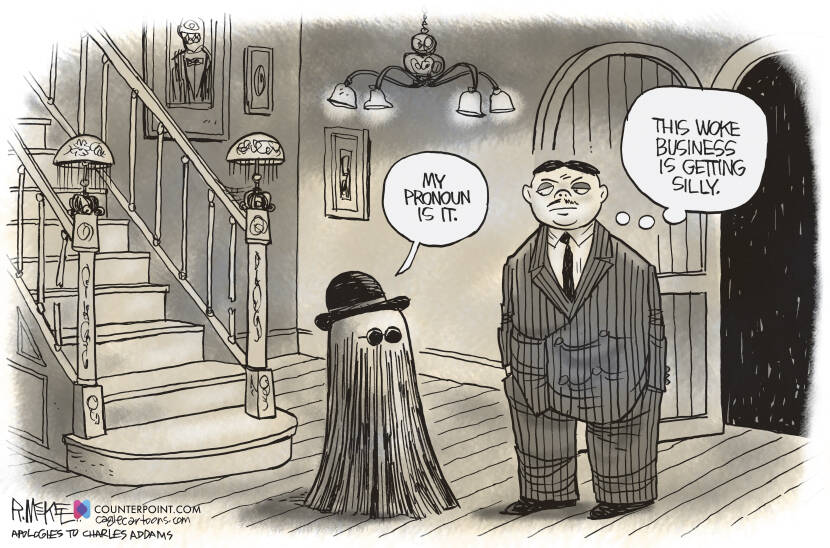There are those of us old enough to remember when the term “politically correct” emerged into the public sphere. It didn’t take long for ideological culture warriors and politicians to exploit the term to suit their agendas. Now, almost three decades later, the term “woke” has become the adjective of the hour.
Like its verbal cousin, woke has been distorted by many on the right (and some on the left) who have perversely attempted to twist the term’s definition into something antithetical of its true meaning.
Merriam-Webster dictionary’s definition of woke is being “aware of and actively attentive to important facts and issues (especially issues of racial and social justice).” This plausible and sensible definition makes sense to me. Nonetheless, we have seen the term repeatedly employed as a blunt instrument being hurled by bad faith actors, who often display a fierce and disturbing pride in not being mindful.
Critics are not confined to one side of the political spectrum. Individuals as diverse as far right MAGA Sens. Ted Cruz and Marco Rubio, centrist Democratic strategist James Carivlle, and liberal comedian and cultural critic Bill Maher have all made their displeasure known. The ever irascible Cruz, has tweeted about “woke” Democrats, “woke” emasculated army soldiers, “woke” CEO’s, and of course, the “woke” media. Mind you, this is the same man who picked a fight with Big Bird.
Carville went so far as to denounce “stupid wokeness,” “faculty lounge talk” and “lunacy” as serious impediments to the Democratic party agenda, and chided wokeness as a major reason for Republican Glenn Youngkin’s victory in the Virginia gubernatorial race last month. Maher sees woke ideology as “over dramatic, pessimistic rhetoric” whose “overriding thrust and ideology is that America is rotten to the core, irredeemably racist… oppressive, sexist and homophobic.”
Opinions are sharp and the passion has reached a fever pitch. For the record, as a college professor, I can say say it appears as though Carville has not spent that much time in college faculty lounges. The majority of professors do not ascribe to “the politics of wokeness.”
In a 1962 New York Times op-ed titled “If You’re Woke You Dig It,” novelist William Melvin Kelley wrote about the appropriation of Black idioms by beatniks. During the Civil Rights movement, activists took the gospel song, “Woke Up this Morning with My Mind on Jesus,” and changed it to, “Woke Up This Morning with My Mind on Freedom.”
Thus, the origins of woke, in this milieu – as fashioned by Black Americans – hearkens back decades. But its conventional universality is a recent phenomenon. Due to the fierce trilogy of Black musicians, social media and the Black Lives Matter movement, the term was included in the Oxford English Dictionary in 2017, defined as being astute to and sensitive to social issues.
If we are all being honest, woke politics is a bipartisan affair. Individuals across the political spectrum have aggressively utilized ill-defined indignities and manufactured outrage to launch and weaponize searing, bombastic rhetoric to score “points” against the other side. Wokeness is just a potent smoke screen to levy a political jaundiced eye against the perceived “other.”
The scorched earth antics that some proponents and critics of wokeness routinely engage in is a form of misguided aggression that cannot be tolerated in a society that prides itself on sane, rational and open debates. We should certainly remember to keep such sobering thoughts in mind.
Elwood Watson is a professor of history, Black studies, and gender and sexuality studies at East Tennessee State University.



